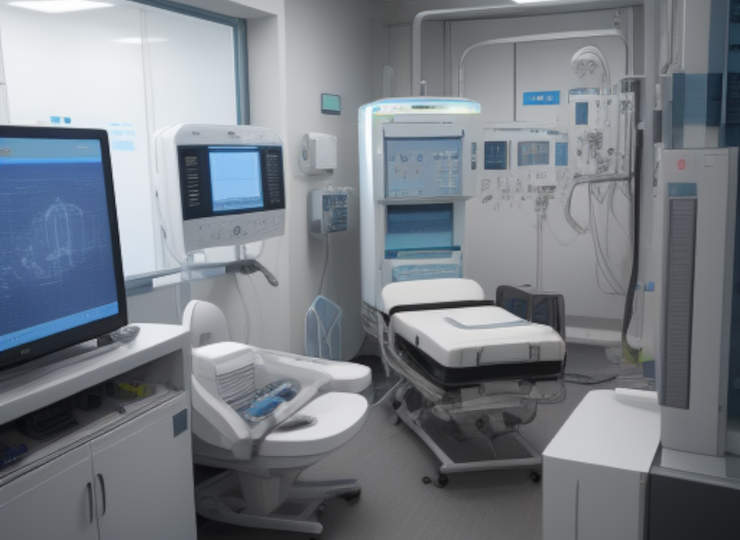文字のサイズ
- 小
- 中
- 大
The medical device industry and Siemens innovation
The medical equipment industry is constantly evolving alongside advances in medical technology.

In this industry, Siemens stands out as a pioneer in innovation and technology. This paper provides key data and background, history and transition, current and future trends, innovations and new developments in the medical device industry, with a particular focus on Siemens’ role.
Globally, the medical equipment market is growing rapidly: it is expected to reach a market size of approximately USD 450 billion by 2019, with a compound annual growth rate (CAGR) of 5-6%. This growth is supported by an ageing population, increasing prevalence of chronic diseases and technological innovations leading to the widespread use of new treatments and diagnostics. Leading companies in this industry include Siemens, GE Healthcare, Philips and Medtronic. These companies offer a wide range of diagnostic, therapeutic, monitoring and in-vitro diagnostic devices, which contribute to improving the quality of healthcare.
The history of medical equipment dates back to the invention of the stethoscope and X-ray machine in the 19th century. These innovations greatly improved the accuracy and efficiency of medical diagnosis. The advent of X-ray equipment was particularly revolutionary, as it enabled the non-invasive observation of structures inside the body. Siemens was founded in 1847 and initially manufactured telegraph machines; in the 20th century, the company entered the medical sector and developed the first X-ray machines in the 1930s. The company continued to show leadership in the development of advanced medical equipment such as MRIs and CT scanners.
The medical equipment industry is currently undergoing digitisation and the introduction of the Internet of Things (IoT). Digital technology improves diagnostic accuracy and streamlines the management of patient data; IoT technology enhances collaboration between devices, enabling remote monitoring and real-time data analysis. The use of artificial intelligence (AI) and big data is a new frontier in the medical device industry; AI is particularly important in the field of diagnostic imaging, where it enables rapid and accurate analysis and anomaly detection in radiological images. Big Data analyses vast amounts of medical data to help discover new treatments and personalise healthcare for patients.
Siemens is actively involved in digitisation and the implementation of AI. The company’s Siemens Healthineers brand develops digital health solutions and intelligent diagnostic tools with the aim of providing cutting-edge medical technology. Siemens plays an important role in the evolution of diagnostic imaging technology. Modern MRI machines and CT scanners offer higher resolution and use less radiation than their predecessors. AI-equipped diagnostic imaging equipment also contributes to faster and more accurate diagnosis. Siemens offers integrated care solutions that comprehensively cover a patient’s diagnosis, treatment and follow-up. This enables healthcare organisations to centrally manage patient data and improve the quality and efficiency of treatment.
Personalised medicine (personalised medicine) is an approach that provides optimal treatment based on each patient’s genetic information and lifestyle. Siemens is contributing to the development of this field by utilising genetic analysis technology and AI. In the future, the medical device industry will have to do more to build a sustainable healthcare system. This is aimed at developing and promoting cost-effective medical devices, designing products with low environmental impact and improving the quality of global healthcare.






